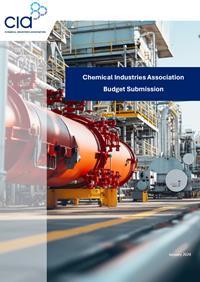The forthcoming Spring Budget is an opportunity for the United Kingdom to send a message to the world that we are ‘open for business’ to attract the investment we need to put our industrial base on a level that can compete across the globe. We believe that at the heart of such an approach has to be a chemical industry that provides the materials needed by sectors such as aerospace, automotive, food & drink and pharmaceuticals.
To enable that, we are calling for action in four areas:
- Net zero growth
- Investment in people
- Vital UK chemical regulation
- Business taxation
Steve Elliott, Chief Executive of the Association said, “Our 21 different and affordable calls will enable a proper and domestic equally affordable fiscal environment for whoever is in Government and would unlock international investment into the UK. We all understand the political pressures but trying to stave those off in an unaffordable way will not deliver for the UK”.
A recent journey
Following the 2023 Autumn Statement the Government published the Advanced Manufacturing Plan which contains 110 business support measures through targeted funding of key consumer sectors and clean energy. Even if chemicals were not one of the key targeted sectors, thanks to the supply chain implications of the funding, chemicals used to produce electric vehicles, life sciences, and aerospace can benefit from the introduced measures.
A combination of the permanent extension of Full Expensing, the Advance Manufacturing Plan and the Lord Harrington review, should encourage increased investment in the UK. Nevertheless, at the CIA we are concerned that a new Government’s approach might affect the long-term certainty of these measures, creating further uncertainty for chemical businesses which are already facing less generous incentives and more policy instability than that enjoyed by their international competitors.
In Asia, the cheaper cost of labour, less strict regulation and the availability of competitive raw materials all result in higher competitiveness for energy intensive manufacturing. Similarly, the US’s Inflation Reduction Act (IRA) grants $369bn over 10 years for green investment, which, coupled with the cheaper cost of energy/emissions, is creating an increasingly attractive environment for manufacturers. Despite tight regulations and high energy costs, the EU remains the biggest global trading block with highly distinctive countries and has responded to the IRA through initiatives such as Horizon Europe, the Green Deal and the Net-Zero Industry Act. Our own Advanced Manufacturing Plan goes some way, but the clear direction of industrial policy and a supporting financial framework is still absent.
Only a stable and realistic industrial strategy will allow our manufacturing sector to keep up with its international competitors. Data shows that, since 2016, the UK has fallen from second to fifteenth place in terms of the flow of inward foreign direct investment (FDI).
The World Bank shows that the manufacturing sector makes up an average of 13.1% of the G7 economies, 14.7% of European Union member economies, 27.4% of the Chinese economy however just 8.8% of the UK economy. The chemical industry is at the heart of manufacturing with its raw materials and innovative breakthrough essential for traditional manufacturing as well as the net zero transition.
For the manufacturing (and chemical) sectors to regain the presence and effect the contribution they once had, we need the Government to show the world that the UK is open for business and is the place to invest.

Spring Budget Submission 2024
Read our budget submission and find out about our key proposals.
DOWNLOADPDF | 967 Kb
























